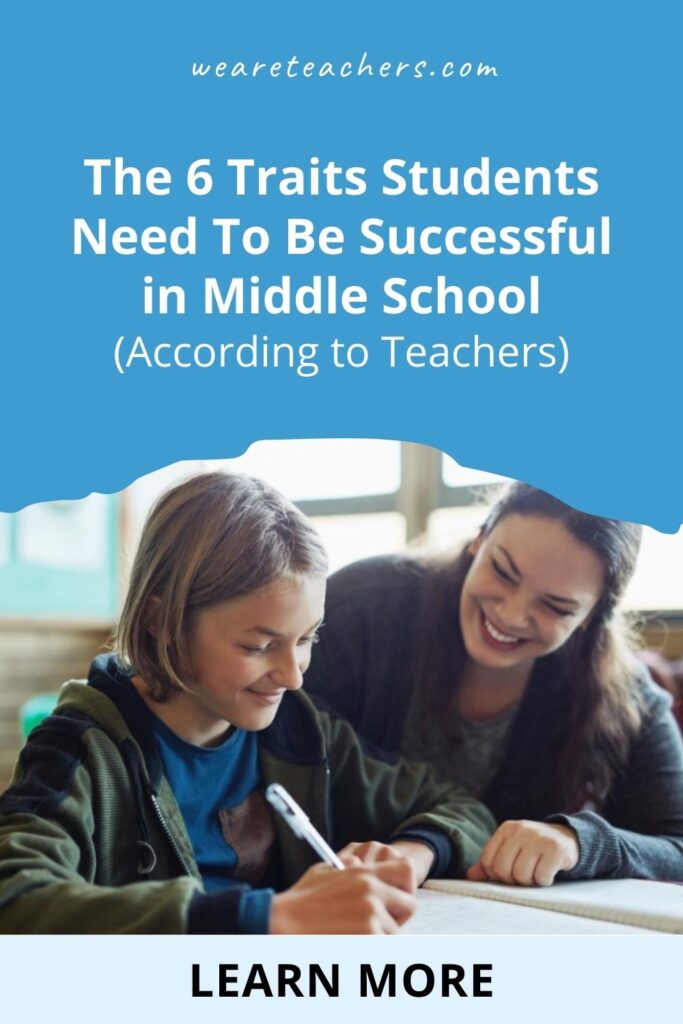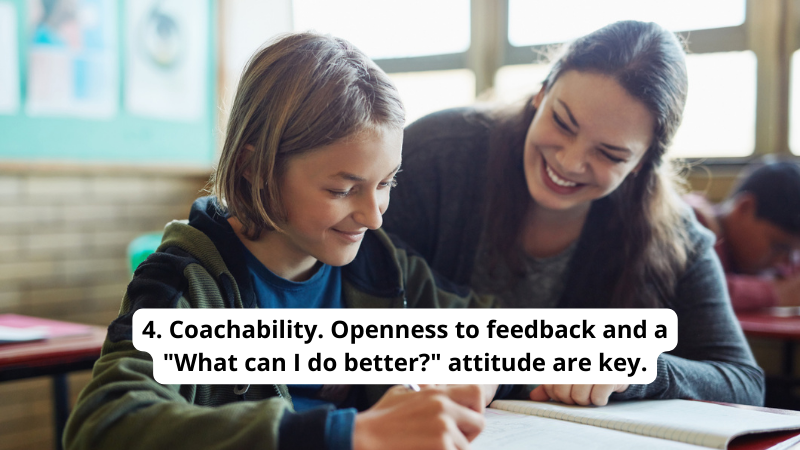As educators, the desire to see our students succeed runs deep. We want them to thrive, reach their full potential, and be ready for challenges beyond school. But what does it take for students to truly excel in their middle school years?
We opened our platform to feedback from 160 middle school teachers regarding the traits that they see in their most successful students, and—spoiler alert—it has little to do with academic ability.
1. Parental support
The single-most predominant trend observed in our teacher feedback had less to do with the students themselves, but rather with the people responsible for them. Interestingly (but unsurprisingly), the responses highlighted a drastic correlation between the quality of a student’s home environment and their academic achievements. Students with dedicated (but not overbearing, lawnmower, or jackhammer) parents are likely to receive emotional support, academic encouragement, and are provided a role model on whom to base their own behavior. Educator Danielle C. emphasized this point, saying, “Parental support is crucial. It’s important that kids have someone teaching them time management skills and how to “school” as they navigate more responsibilities and work. Also, a listening ear when they need to talk. Lastly, lots of love, discipline, structure, and encouragement.”
2. Respect
Educators agreed that this quality makes all the difference in student success. Many teachers noted the relationship between respect and parental support. Here, students’ respect for themselves, their peers, and their topics of study promotes positive relationships, creates an inclusive classroom environment, improves communication, and helps to develop responsibility and self-awareness.
3. Social-emotional savvy
This single overarching trait encompasses a lot of our teacher responses. Many educators expressed that their thriving middle schoolers could regulate and manage their emotions, demonstrate empathy, take accountability, and cultivate gratitude. Teacher respondent Paul M. shared this about his thriving students: “Self-confidence paired with self-awareness, a bit of humility, the ability to accept success and failure equally. They are often the result of conscientious and concerned parenting.”
4. Coachability
According to our teacher respondents, a student’s willingness to receive and implement feedback is highly indicative of their success in school. Coachability is essential for developing a healthy perspective on criticism, perseverance, and growth. Educator Betsy L. put it this way: “Openness to feedback is key. They don’t assume they know what the task is, and they ask for specific kinds of feedback throughout the process—not a ‘is this right?’ kind of attitude, but a ‘what can I do better with …?’” This quality also aids in fostering a positive relationship between student and teacher, which is extremely beneficial for a positive middle school experience.
5. Critical thinking
This quality encompasses many of our teacher responses, including asking questions, demonstrating curiosity, problem-solving, and applying concepts. Critical thinking is an essential trait for middle school students as it helps them analyze information, navigate challenges (in both school and in life), and promote personal growth and development.
6. Intrinsic motivation
Finally, students who possess intrinsic motivation tend to be driven by a legitimate desire to learn and grow, rather than by external rewards or pressure. It’s no wonder that the most successful middle schoolers share this quality, as they are more likely to self-advocate, engage in their schoolwork, and seek out challenges. Gary L. shared how this trait shows up in his class: “Having just scored a mock exam where 75% of the questions haven’t even been attempted, I hugely value those students who will do the work for themselves, not just because they have to. Self-motivation is huge.”
Remember: These skills can be learned!
It’s important to remember that these 6 traits are not innate abilities but rather human qualities we can develop and nurture. While this type of nurturing should begin at home, it can be fostered and encouraged in school too. The qualities trending here are less pertinent to academics and more indicative of a healthy, happy, well-rounded middle schooler.
As respondent Rebecca beautifully wrote, “The students I see as truly thriving aren’t necessarily getting the best grades. They are the happiest. Happy to be there, happy to interact, try new things, talk to their teachers, see their friends, and make the most of the day (whether they got the homework done or not!).”
What traits would you add to this list? Let us know in the comments!
Plus, for more articles like this, be sure to subscribe to our newsletters.


